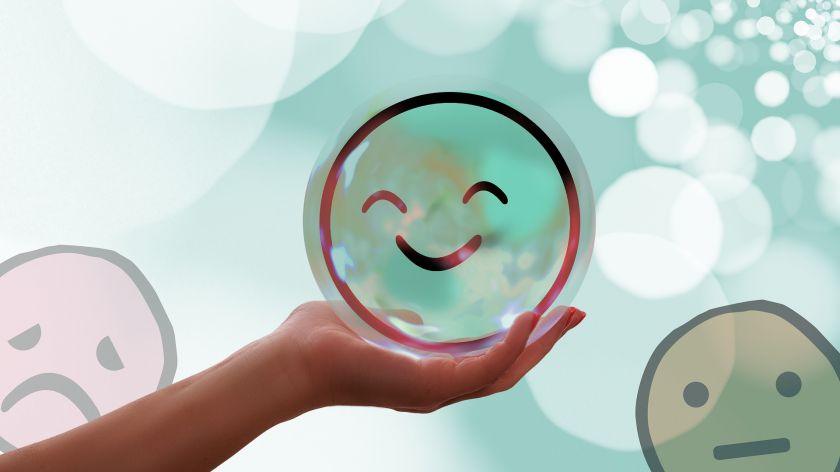SAD or sad? Dealing with stress and tiredness in the darker winter months
-
 Gerd Altmann via Pixabay
Gerd Altmann via Pixabay
The third Monday in January is allegedly the most depressing day of the year. At least according to a UK travel agency that coined the term ‘Blue Monday’ in 2005. But while Blue Monday might be a pseudoscientific notion, seasonal depression, is very much real. What are the best ways to cope with low moods and stress during the winter months?
For Polish student Maja Gierejko stress has become a daily occurrence. ‘I get stressed very easily and it typically also makes me enter a downward spiral,’ Gierejko explains. For the third-year student, winter definitely amplifies those feelings. And she is not the only one dealing with heightened stress and anxiety during the busy and dark winter months.
According to mental health care psychologist and assistant professor Ellen Driessen, seasons can definitely play a role in people feeling more stressed, tired, and low in mood. ‘Winter is typically the time when these feelings are amplified as the study load is piling up and the dark, gloomy days offer no relief.’ If left unattended, stress can trigger more serious concerns such as burnout, and if one is vulnerable to depressive episodes these feelings too will worsen. But what is the best way to cope with stress?
‘I like to get cosy under a blanket, drink a cup of tea and listen to calm classical music’
For Gierejko, a welcoming environment is key to de-stress. ‘I like to get cosy under a blanket, drink a cup of tea and listen to calm classical music.’ However, the 22-year-old is also aware that every individual is different. ‘It’s important to find something that works for you and listen to your own body and mind more. Blindly taking someone else’s advice can make you even more frustrated if it does not work for you.’
Creative rants
For research master student and campus poet Thijs Kersten, poetry can be the best stress relief: ‘I write performative poetry, and that entails giving myself to the audience. That vulnerability is cleansing to me, and it helps to take my mind off the stress I feel.’
Kersten’s recommendation for dealing with stress is to be creative – also as someone who isn’t an experienced artist. ‘Just write something to vent out what you feel. I have found that what works well for beginners is to write about something that’s incredibly annoying to them. And if you are not comfortable with your writing yet, you can make use of fill-in-the-blanks poetry that can be found online.’
SAD
Feelings of study and work-related stress during the busy winter months are recognisable for most students. Some, however, might be dealing with more serious cases like seasonal affective disorder (SAD). But how does one differentiate between common feelings of stress, or more serious conditions like clinical depression or SAD?
‘SAD-related depressive episodes come up mostly in the winter period’
According to Driessen, someone is said to be clinically depressed when, for a period of at least two weeks, they feel every day and for most of the day either low in mood and/or have a lack of interest in everything that usually makes them excited. ‘Additionally, these two required symptoms need to be accompanied by others such as difficulties sleeping, changes in food intake, feelings of worthlessness or guilt, and suicidal thoughts.’
SAD can be diagnosed when there have been multiple separate episodes of clinical depression, and the onset of these episodes is clearly connected to seasonal patterns. ‘SAD-related depressive episodes come up mostly in the winter period and have happened in at least two consecutive years,’ explains Driessen.
Light therapy
SAD is more common among younger people, women and people living in the Northern Hemisphere. ‘One of the causes of SAD is related to the changes in our normal biorhythms because of the increased levels of the hormone melatonin during daytime. Because of this, treatment is aimed towards downregulating melatonin levels during the day and recalibrating or balancing the biorhythm – a common and effective way of doing this is light therapy,’ says Driessen.
‘Get out of bed early in the morning, have breakfast, go outside, and move or exercise’
There are also ways to alleviate the symptoms of SAD at home. According to Driessen a simple but important alleviation is to create structure in your day: ‘Get out of bed early in the morning, have breakfast, go outside, and move or exercise. This will help your body to decrease melatonin levels.’ However, Driessen emphasizes: ‘If you do think you are dealing with or heading towards clinically recognized depression, do seek professional help and treatment.’
Community
According to Driessen, it’s also important to mingle with other people: ‘If you are vulnerable to depressive symptoms, it is natural to feel like you do not want to go out and engage with people. Giving into these feelings can drag you into a vicious cycle that is hard to get out of. So always stick to your plans and go out, don’t avoid it.’
The stress of the winter months is also felt at the university chaplaincy, according to university chaplain Marieke Fernhout: ‘For us, the period from October to April is the busiest period with the Advent services, Christmas, and Easter. I also see a lot of students start to come in feeling stressed from November onwards.’
Like Driessen, Fernhout considers community as vitally important to combat stress: ‘Many students think they are alone in their struggles, but they are not. By finding other people and spending time together you broaden your perspective and get out of your own cycle of anxiousness and stress.’ Fernhout encourages everyone who is struggling, religious or not, to visit the university chaplaincy. ‘You can come and join one of our groups or events, have a one-on-one meeting, or simply make use of our garden, piano, or silence room.’
Body and mind
Taking care of your body is also crucial when preventing stress and a low mood: ‘I believe in a holistic body and mind,’ says sports centre instructor Sylvain van Brummelen. ‘When I notice that I am not grounded, I try to think about what is happening and why. I structure my thoughts and make the right adjustments for a better mindset. Meditation and yoga help a lot.’
Additionally, doing sport together can help with finding a community. Van Brummelen: ‘When people work out, they are not doing it alone. They find peers and together they grow not only physically but also mentally and emotionally.’ Finding this sporting community can be quite easy, especially early in the new year when many come to find a new sport.
‘Your brain is your computer and at the end of the day, you have all these tabs open that need to be closed’
Van Brummelen adds another important aspect: rest. ‘Your brain is your computer and at the end of the day, you have all these tabs open that need to be closed. That is how you will truly rest. I recommend consciously taking ten deep breaths every morning, during the day, and before bed to bring yourself to the now and relax properly.’
The Radboud Sport Centre is all about helping students work on a healthy and vital life, Van Brummelen says. ‘Mental health is a part of that and should always be acknowledged.’ For him, variety is key: ‘The best outcomes are achieved when people feel safe and comfortable and are open to try different practices and approaches to better their state of mind.’



